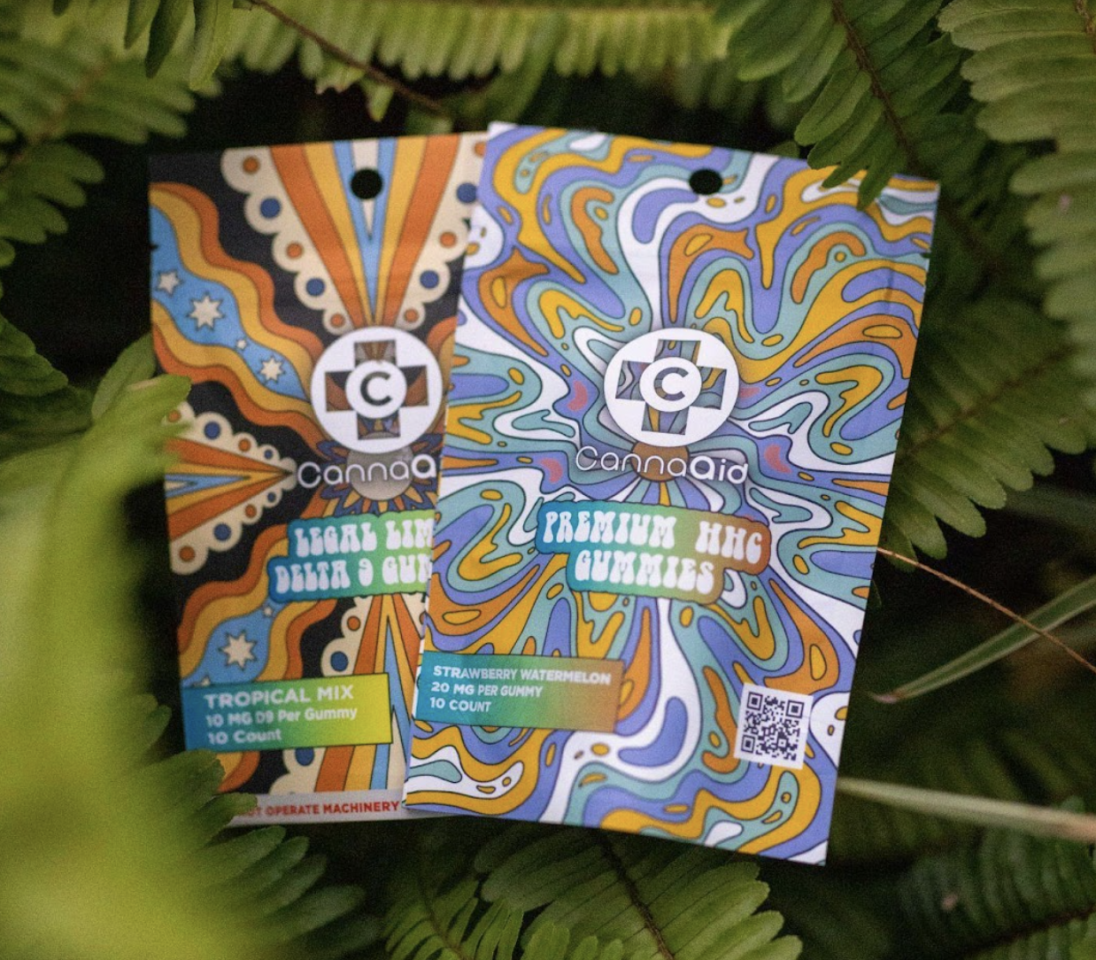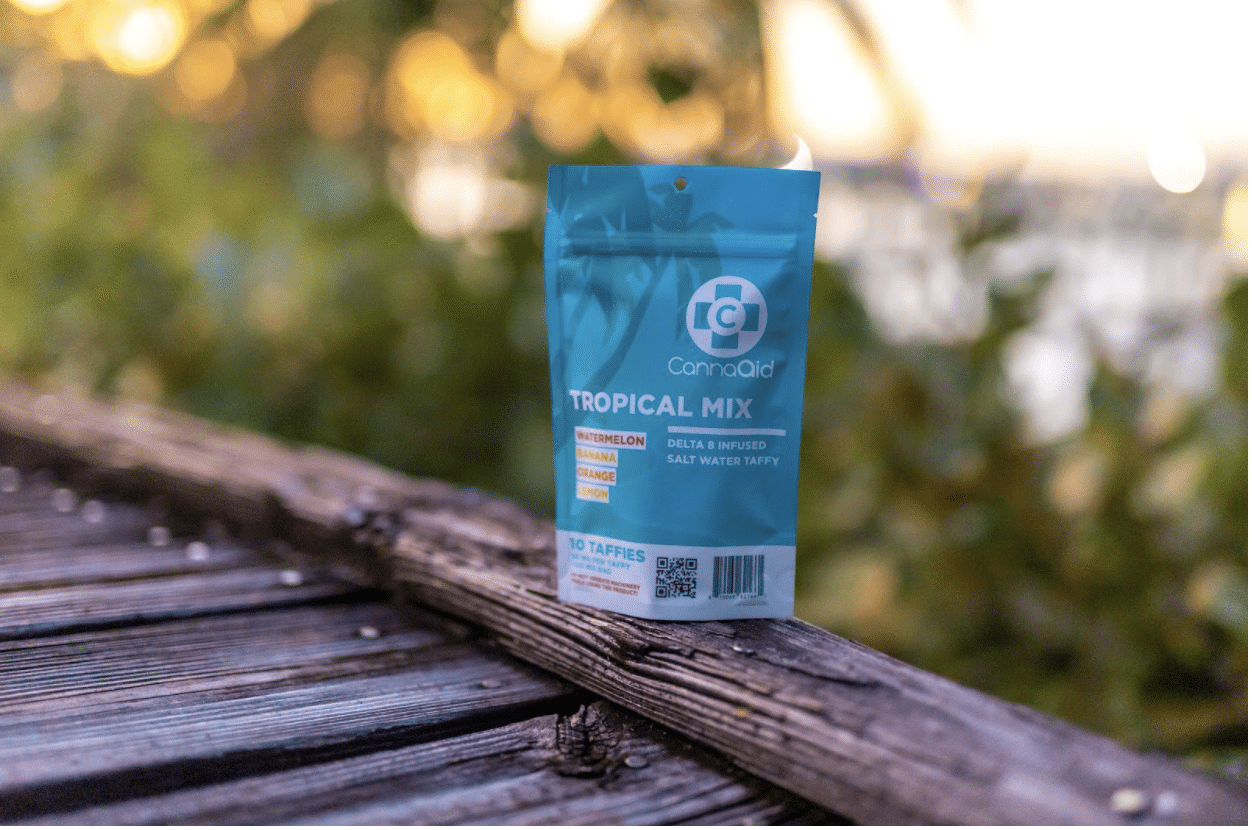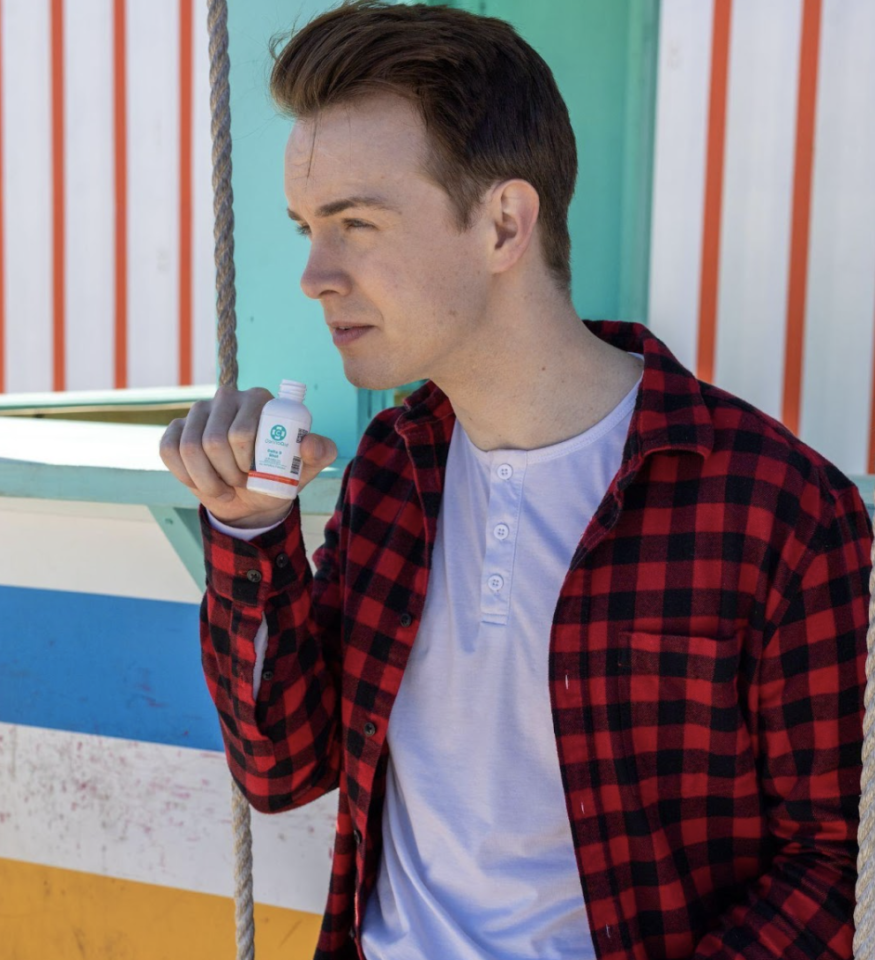Recently, the industry has witnessed the rise of a new compound: Delta-8 THC. Delta-8 has made waves throughout the market, introducing consumers to products we’ve never experienced before.
In a time when so many brands are trying to capitalize off this new cannabinoid, there’s one company that seems to have achieved the gold standard for Delta-8 products. Their name is CannaAid.
The Rapid Growth of the Delta-8 THC Industry
Before we talk more about CannaAid itself, it’s important to look at the incredible, rapid growth that the Delta-8 THC industry has seen in the past few years.
Even though the Delta-8 compound was discovered way back in the 1940s, it wasn’t until recently that its popularity hit the United States. But, once it did, it never slowed down.
When it was first introduced, it was clear that Delta-8’s legality fell under the 2018 Farm Bill. As long as you derived the compound from hemp and it didn’t contain more than 0.3 percent Delta-9 THC, then D8 is federally legal across the country. Quickly, popularity exploded, and people from all over the US fell in love with delta 8’s accessibility and potency. At the time, Delta-8 was the most psychoactive compound you could purchase under the Farm Bill. Thus, consumers were bound to celebrate.
Unfortunately, this lack of regulation didn’t last long.
While the manufacturing of Delta-8 THC is still widely unregulated today, many states have taken it upon themselves to regulate the cannbainoid. Some places have banned the cannabinoid altogether. Thus, you won’t be able to purchase Delta-8 THC in many places in the U.S., and the list of states prohibiting the substance only continues to grow.
Alongside the incredible growth and popularity this cannabinoid has brought, it’s also brought a lot of conversation surrounding legality, psychoactivity and more.
Regardless, for consumers and canna-buisness-owners, the introduction of D8 has been both a positive and exciting experience. Despite pushes for regulations, Delta-8 THC’s popularity only continues to grow each and every day. And CannaAid sees that firsthand.

The Launch of CannaAid
Lee VanTine, the founder of CannaAid, knew the cannabis industry was going to be big long before he ever became a part of it.
At just 18 years old, VanTine moved to Colorado in hopes of learning more about the industry, its cannabinoids and what the plant had to offer. A few years later, once he got his footing, and cannabis started becoming more mainstream, VanTine decided to release his own line of CBD products. From there, CannaAid was born.
VanTine knew that, in order for his company to be a success, he had to make sure his products were both quality and affordable. He wanted everyday consumers to get the chance to access hemp and hemp-derived CBD products. Thus, the brand started becoming well-known for its great product selection and affordability. But, at the time, CannaAid—and the rest of the cannabis industry—was focused on CBD. Quickly, that changed, too.
As the market adjusted, so did CannaAid. When it became clear that the cannabis industry was more than just CBD and THC, CannaAid began focusing on crafting products with other cannabinoids such as THC-O, CBG, and, of course, Delta-8 THC.
CannaAid prides themselves on their reliability and consistency when it comes to high-quality, safe hemp products. While so many brands fail to provide their customers with the same top-shelf blends, CannaAid makes sure that they create every product carefully, consciously, and with consistent formulas. As Nicholas Groat, CannaAid’s COO, says, “No one wants to get something that’s different the next time around.”
Today, CannaAid offers a huge selection of hemp products, ranging from various cannabinoids, strengths and flavors. No matter what kind of CBD, THCV or even D8 product you’re looking for, CannaAid is the place to turn to.

THCV and THCO Products of CannaAid
Even though CannaAid might be known for their gold-standard Delta-8 THC products, the brand offers way more than just that. We wanted to give you an inside look into some of CannaAid’s best THCV and THCO products, too.
THCV + CBD Weight Loss and Energy Vegan Softgels – If you’re looking for a healthy, natural way to get your body looking and feeling better, then CannaAid’s THCV + CBD softgels are ideal. These high-quality softgels come packed with 10 mg of THCV and 10 mg of CBD per softgel, giving you a potent dose of 20 mg altogether. These softgels are a great way to experience the benefits of THCV in a subtle-yet-energizing way.
THC Delta 8 + THCV Blue Razz Gummies – Easily, CannaAid’s Blue Razz gummies are the best way to give your body some D8—especially if you have a sweet tooth. These gummies are packed with 5 mg of THCV and 5 mg of Delta-8 THC each to give you a mild yet blissful experience. These gummies are 100 percent vegan, hemp-derived and won’t melt while you’re waiting for your next dose.
THCV Tincture – One of the best, most effective ways to enjoy your THCV products is with a tincture. Tinctures provide quick, potent effects and you can consume them in a few different ways depending on your personal preference. CannaAid’s THCV tincture is a perfect 500 mg total, ideal for both newbies and experienced consumers to try.
THCO Gummies – Along with THCV, CannaAid also offers THCO gummies. THCO is said to be even stronger than Delta-9 THC, so you’ve got to consume this tasty treats with caution. Each gummy contains an ideal 20 mg of THCO.
Alongside D8, THCO, and THCV, you can also find Delta-9, HHC, CBDA, CBG, CBC and CBN products for sale on CannaAid’s website. Truly, there’s something for every cannabis consumer.

Why CannaAid Delta-8 Products are the Best
There are a lot of reasons why you should turn to CannaAid for your Delta-8 THC products. In a time where so many brands are trying their hand at D8, CannaAid knows the ins and outs of the cannabinoid better than anyone. Their cannabis expertise and years of industry knowledge come out the moment you get your hands on one of their Delta-8 products. Simply put, these products are a clear cut above the rest.
When you purchase Delta-8 THC products from CannaAid, you know you’re getting the purest, high-quality product option possible. They always have their third-party lab-test results available for you to read, giving you the ultimate peace of mind about the brand’s quality-control standards. Whether you’re hoping to purchase D8 gummies, pre-rolls, vapes, or tinctures, CannaAid has just what you need.
So, the next time you’re interested in trying a Delta-8 THC product but don’t know where to start, head over to CannaAid’s website. Here, you’ll be introduced into a whole new world of high-quality D8 products and supportive cannabinoids. Avoid the hassle of dealing with low-end, sketchy Delta-8 brands and put your faith in CannaAid, instead. We know we do.
The post How CannaAid Became the Gold Standard of Delta-8 Products appeared first on High Times.
source https://hightimes.com/sponsored/how-cannaaid-became-the-gold-standard-of-delta-8-products/

